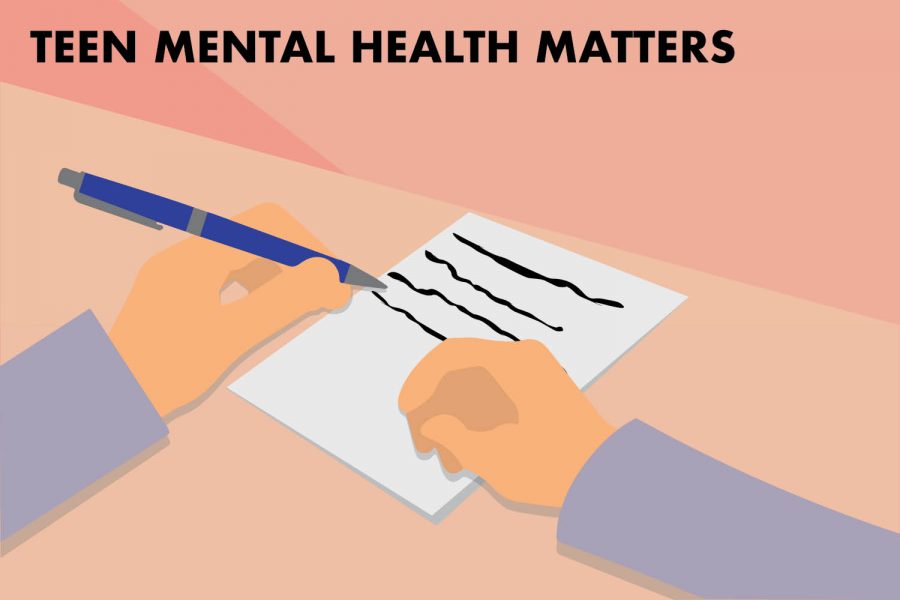Opinion: Teen mental health matters
Mental health is a difficult subject, but sharing emotions can help teens realize they are not alone
December 10, 2021
When COVID hit nearing the end of my sophomore year, school was canceled and students were put into online learning. At first I was excited, however, as the last quarter continued, being stuck indoors and not being able to talk to anyone wore me down. Eventually I fell into a depression that lasted through the first quarter of my junior year.
I believed I was helpless, that all the misfortune that fell on me was my fault. The passing of a loved one, a hard break up and the general discomfort that the pandemic brought started to weigh on me. In response, I punished myself. I refused to hang out with friends. I wouldn’t eat or do my homework at all because I thought I was the victim and needed a break from everything. It came to the point where my actions could affect my future. I started failing my classes, scored poorly on the ACT and even skipped school on occasion. If I didn’t shape up, I really would be helpless.
I finally decided I had hid my emotions for too long, and I opened up to my parents. I didn’t schedule a time or a minute alone. I walked up to them one night and explained my situation. At first they scolded me, but then they sat me down and talked to me. I opened up about all my thoughts, how school stressed me out, how the pandemic scared me, and how I felt like I was alone and afraid. As I continued they comforted me more, my parents told me that they had many of the same concerns and empathised with their experiences as well.
Though expressing my emotions to my parents helped, I still felt uneasy. Eventually I came up with the idea to write down what I had on mind. First I wrote down everything I cared for: my family, friends, my dog, my home, anything I could think of. Then I wrote down everything I was struggling with: my grades, self confidence and talking to others. Then I wrote down what I love about myself: I’m funny, I’m kind and I’m a good person.
Making those lists helped me start to deal with my depression because it gave me strength. I started talking with my friends again. I began looking others in the eye. Most importantly my confidence returned. Once I realized what I was missing out on by hiding in my room and not being part of the world, I was able to be myself again.
Any time you have a problem, do not be afraid to ask for help, either from a friend or family. Once others know you are in pain, they will help you heal. Even if it is a small act, telling another person can motivate you to get better so you can return to being the person you were meant to be.
Another thing I learned was that distancing yourself from those who care about you does not help. When you are depressed, it is easy to avoid others and keep quiet about your problems. If you do, all your insecurities will pile up and eventually you will have a breakdown and do something you may regret. Reach out to someone you trust. You’re not alone.
My point is that if you want to be happy, you need to seek out help. Seeking out a professional is not something you should be ashamed of. We are all human, and though there is no one like you, there are always those who can understand you.










